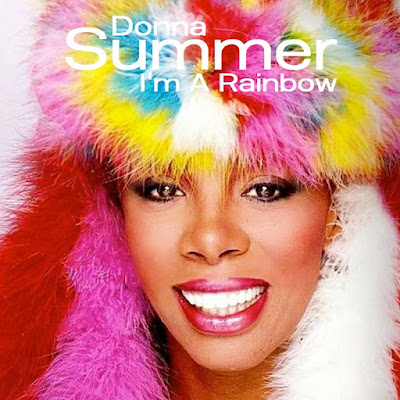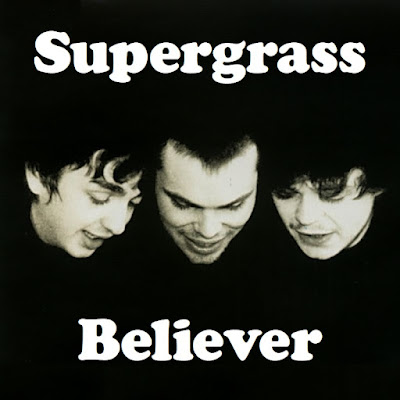The origins of Third Eye Blind can be traced back to the early 1990's, when Stephan Jenkins was writing music, but struggling to put and hold together a consistent musical lineup. Originally he was one half of the interracial rap duo Puck and Natty with musician Herman Anthony "Zen" Chunn, but because of legal issues from the musical group Tuck & Patti, the duo later changed their name to "Puck and Zen". They managed to attract some attention from record labels, and actually had one of their few recorded songs 'Just Wanna Be Your Friend' included on a soundtrack for the television drama 'Beverly Hills, 90210'. A record deal with Capitol Records fell through when Jenkins did not see eye to eye on the label's views on their musical direction, and the group broke up shortly afterwards. Jenkins' next move was to start up a rock band instead, recruiting and then losing numerous members, while writing and workshopping early material with musician Jason Slater. Demos were recorded in 1993 at a professional studio, including early songs such as 'Hold Me Down', which would be scrapped and shelved entirely, as well as future classics 'Semi-Charmed Life and 'Alright Caroline'. Around this time Slater left the band, and guitarist Kevin Cadogan and bassist Arion Salazar joined, alongside a litany of drummers. The band seemed to make significant progress with the arrival of Cadogan, and the songs really started to develop when Cadogan's big guitar sound was added to Jenkin's more stripped down demos. The two became songwriting partners, with Jenkins writing the lyrics and Cadogan helping him brainstorm musical ideas, and they worked on a second set of demos. Following a disastrous "Battle of the Bands" contest, where Jenkins was sick and unable to perform well, and Cadogan blew out his guitar amp two songs into the show, the band were on the verge of breaking up, but instead they regrouped and recruited two new key people - drummer Brad Hargreaves, and manager Eric Gotland, a long-time personal friend and confidant of Jenkins. In April 1996 the band landed an opening gig for Oasis at the San Francisco Civic Auditorium, and before long they found themselves in a bidding war among record labels, signing to Elektra Records in June 1996, in what was later reported as the largest publishing deal ever for an unsigned artist at the time. Recording for their debut album was fraught, with fall-outs between nearly all the members, but despite the issues 'Third Eye Blind' was finished and released in April 1997. Sales were propelled by the success of their first single, the long-worked-upon and finalized version of 'Semi-Charmed Life', and the album stayed on the charts for over a year, and it would eventually go on to be certified platinum six times by the RIAA, indicating over six million copies sold in the US. The band began work on a second album in January 1999, but the sessions were even more difficult that before, as Cadogan and Jenkins were already not getting along while touring in support of their self-titled album, with Jenkins wanting to fire Cadogan, but they agreed to put aside their differences and work together on further music. However, after the music was recorded, the animosity flared up again with Jenkins and Cadogan both fighting for more of their own written songs to make the final track list. one last track list was finally voted on by other members of the band, and 'Blue' appeared in November 1999, with four singles being released from it to promote the record.
In January 2000, two months after the album came out, it was announced that Cadogan had been fired after playing a show at the Sundance Film Festival, with no reason being given for the termination. He was immediately replaced by Tony Fredianelli, who had briefly jammed with the band in 1993, and the new lineup toured heavily in support of the album. After four straight years of recording music and touring in support of it, the next couple years were quieter for the band, with the planned recording of an EP to follow the album delayed from late 2000 to early 2001. However, by 2001 Jenkins had fallen into a deep depression, isolating himself for almost a year, and turning his attention to writing material for a third studio album, amassing over 40 songs in this time. Progress on the album was slow, and when it was finished it was originally scheduled to be released in early 2002, but was delayed several times before it finally appeared in May 2003. 'Out Of The Vein' debuted on the Billboard 200 chart at number 12, although sales were actually down compared to those of 'Blue', and neither of the two singles released from it performed to the level of their previous ones. At this time Elektra Records was being absorbed into Atlantic Records, and because of the merger in 2004 Warner Music cut Third Eye Blind, along with over 80 other acts, from its roster. With no label to hassle them, Jenkins started writing a solo album of his own, while at the same time, Fredianelli, Salazar, and Hargreaves had also been working on music together, and upon hearing it, Jenkins scrapped his solo plan in favour of working on a fourth studio album with the band, beginning in early 2005, but progressing slowly as Jenkins suffered from writers block, and struggled to write lyrics for the songs that had been created for him by the rest of the band. In 2007, Jenkins announced that the fourth studio album had a tentative title of 'The Hideous Strength', and that there were around 35 songs written for it, with some of the lyrics being quite political in nature. As the process dragged on, internal strife would flare up again across 2008, with Jenkins beginning to lose interest in the band, culminating in him firing his long-time friend and band manager Eric Godtland, and then suing him for not paying him enough, with Godtland in turn counter-suing Jenkins, responding that the lower pay was due to lessened productivity by the band, which was Jenkins' fault. Despite the discourse, the band persevered and by late 2008 the material they had been working on for the last five years would finally begin to be released, starting with a teaser of sorts through the three song 'Red Star EP', followed by two album's worth of material that they'd written. Opting against a formal double album release, the plan was to release 'Ursa Major' with the material that was closest to completion, and then a second album 'Ursa Minor' later on.
Plans continued to change though, and the 15 track 'Ursa Major', which was due to be released in June 2009, ending up as an 12 track record released in the August on the band's own label Mega Collider Records. Sales were encouraging for a self-released album, although not hitting the heights of their first three records, but following a tour supporting the album in 2009, Fredianelli was fired from the band, and was replaced by Irish musician Kryz Reid. Both Jenkins and Hargreaves would continue to mention an 'Ursa Minor' release, but the focus remained on touring, and the release would eventually be cancelled by Jenkins because of the involvement and subsequent departure of Fredianelli. Work on a fifth album commenced, with early reports showing plans for a 2011 release, but writer's block continued to hamper Jenkins ability to complete lyrics for songs, and the album's release continued to be delayed from 2013 to 2014, then to 2015. In May 2015 the band announced that their fifth studio album was finally completed, and on June 16, almost six years after their last one, 'Dopamine' was released. Over the next few years the band released two more studio albums, but 'Ursa Minor' remained lost, so it's good to find that tracks recorded for it between 2004 and 2011 have leaked online, and we can now hear approximation of what it might have sounded like. As two tracks from the album - 'Captains Of Emo' and 'Swimming' - have never leaked online, and two others were ragged live recordings, we're left with a fairly short disc, and so to boost it to full-album status I've added a couple of tracks from a stand-alone single that came out just before 'Ursa Major', and a brace of songs from another unreleased EP, which was recorded around the same time - in fact, 'Carnival Barker' appears on both 'Ursa Minor' and the 'Symphony Of Decay' EP, while a short instrumental version of it closed 'Ursa Major'. It's all housed in a companion sleeve to its sister album, so enjoy.
Track listing
01 Now I Don't Know
02 We Can't Say We / Stevie Ray Vaughn
03 Carnival Barker
04 Second Born
05 Away (Twilight)
06 Standing Up For You
07 There's No Hurry To Eternity
08 Red Star
09 Knife In The Water
10 Non-Dairy Creamer
11 Animal












